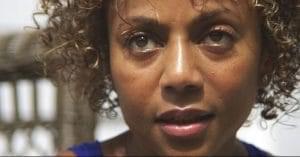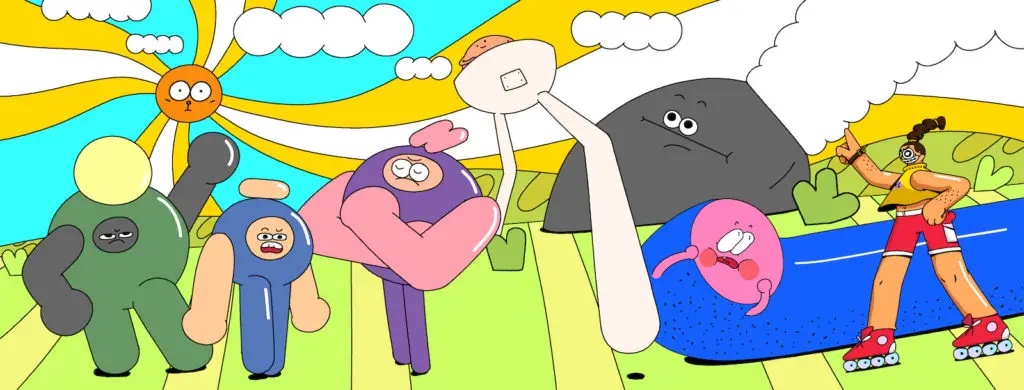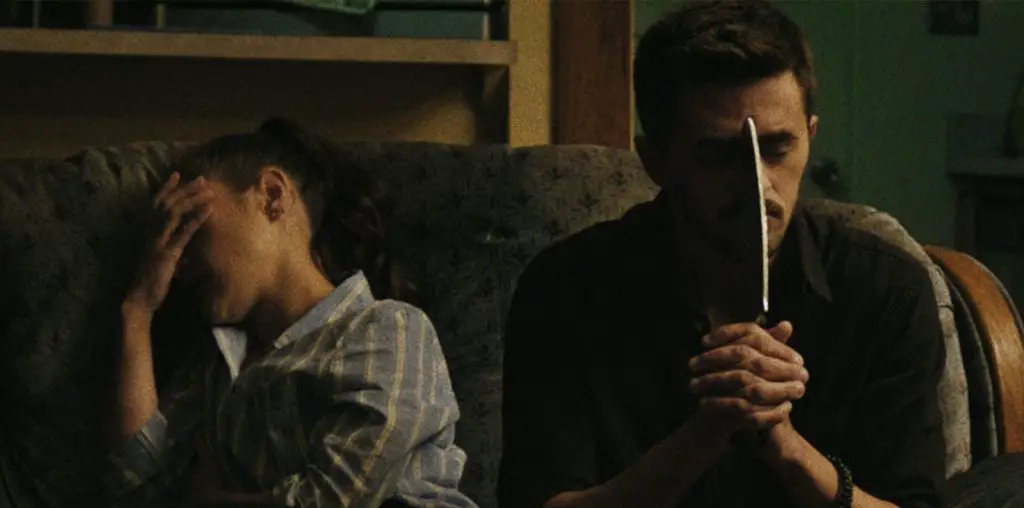
Whenever a young couple decide to visit or move to a rural, isolated area in the first five minutes of a film, it’s usually a harbinger of chainsaws or some other such method of unpleasantness. Tormenting the Hen plays with these expectations in an occasionally tense manner, but ends up being a movie of vague, ethereal ideas that don’t hold as much dramatic weight as intended.

“…a movie of vague, ethereal ideas that don’t hold as much dramatic weight as intended.”
Upon arriving at their new residence, Claire (Dameka Hayes) and Monica (Carolina Monnerat), soon to be married, immediately have trouble settling in. Claire is a playwright working on a production, so she’s often away, leaving Monica at home with little to do. Of course, there are worse problem than boredom, but one of their neighbors, Mutty—“not like Muddy Waters,” he explains—is uncommonly attached to his lawnmower, which he rides around on all day to an infuriating degree. Nonetheless, Monica tries to initiate small talk, but it quickly becomes clear that Mutty is mentally impaired, or at least on a social level. Mutty’s erratic behavior acts as a shark’s fin, robotically circling Monica and Claire’s relationship, which is already on increasingly stormy waters.
The support beams that keep the film from crumbling upon itself are Hayes and Monnerat, who give understated, but potent performances as the two leads. At times, their dialogue is delivered so naturally, it feels improvised (maybe it is, for all I know). They maneuver the range of emotions required for the roles believably, even if the film itself doesn’t always know what to do with them. In fact, the film is almost entirely reliant on audience projection, without which, there’s little more than a thematic mirage. There appears to be something there, but the more you think about it, the more you feel duped.
Writer/director, Theodore Collatos, chooses to make characterization the crux of his film, which is a noble conquest. Where he fouls up in this endeavor is in how he goes about it. Monica, for instance, begins to lose her mind in some fashion. Why? The film’s explanation is essentially, “because that would be interesting.” In other words, things happen to the characters, rather than from the characters, resulting in an artificial progression. There’s no arch; there’s simply point A and point B. Elsewhere, Claire is directing her play, which features two actors who aren’t satisfied with the script and push for the opportunity to improvise. Naturally, she’s hesitant, because she’s a writer and, therefore, precious about her writing. If this conflict sounds standard, dull and foreign only to those who’ve never watched the “behind the scenes” section of a DVD, you’d be right.

“…understated, but potent performances as the two leads.”
All we’re left with for substance is Mutty. Is he a red herring or a symbol for the pervasive sense of danger that Monica and Claire will always endure? By the end of the film, I couldn’t find it in myself to care. Collatos might have had certain concepts and emotions that he wanted to explore, but he forgot to build a movie around them.
Tormenting the Hen (2017) Directed by Theodore Collatos. Written by Theodore Collatos. Starring Carolina Monnerat, Dameka Hayes, Matt Shaw, Brian H. Brooks, David Malinsky, Josephine Decker, Rocky Scarboro
1.5 out of 4


